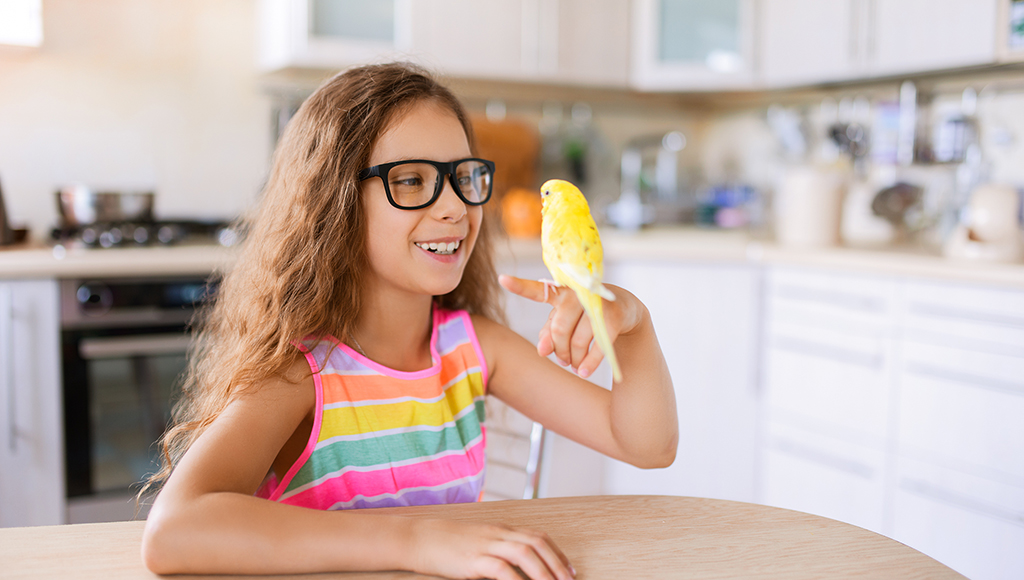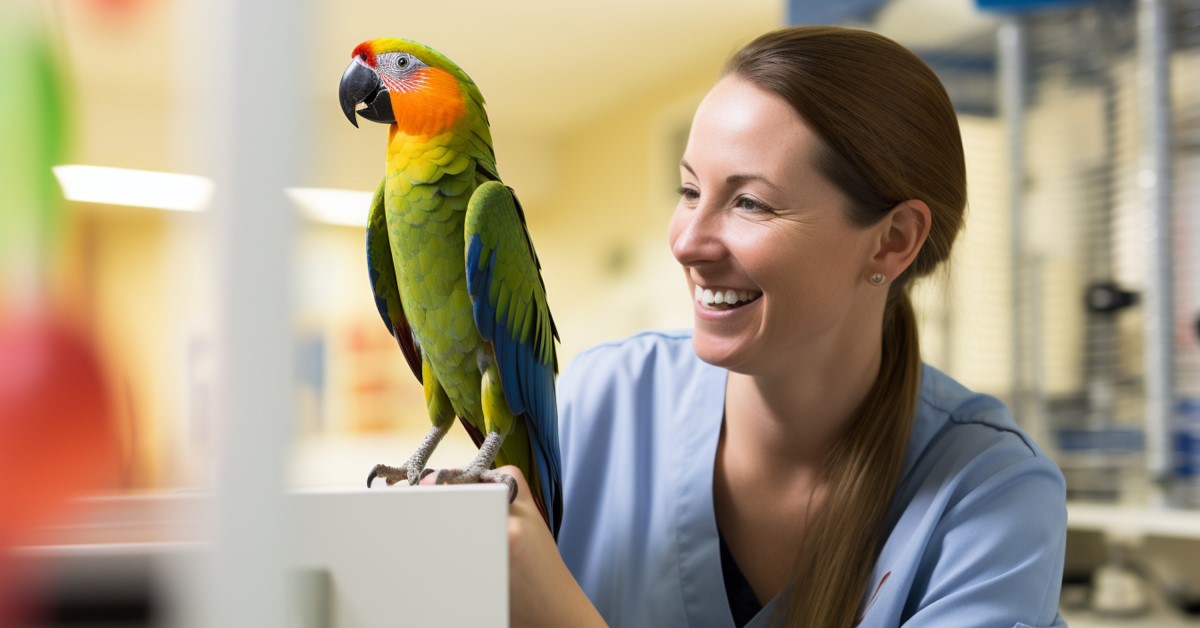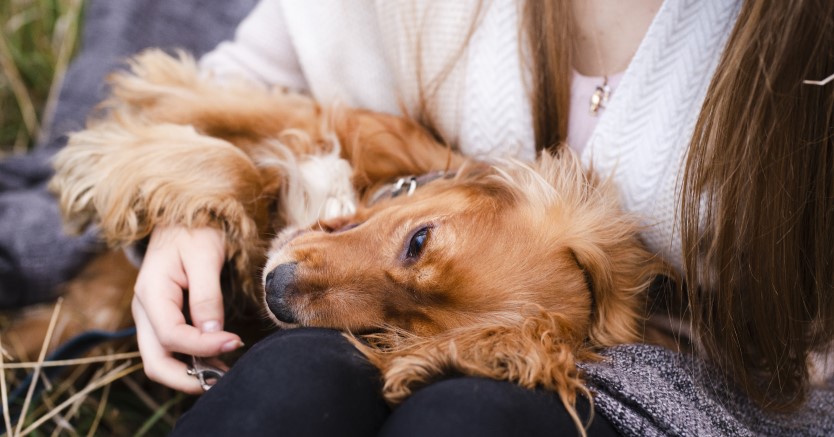Living With Feathered Friends
Creating a healthy and safe avian environment.

The very qualities that we find admirable and fascinating about birds of all breeds - their brilliant colors, delightful speech capabilities, and intelligence - have made them the third-most-popular type of animal companion in the United States. People are fascinated by birds. Most people also think that birds are one of the easiest pets to have; however, caring properly for a bird goes way beyond simply placing them in a cage with food and seed and cleaning it regularly. This is especially true if you wish to have your feathered friend's companionship for a long time. If we imagine ourselves caged for the remainder of our life with little or no interaction beyond someone occasionally staring at us or making noises from the other side of the bars, only to leave after a few minutes, and filling up our food and water, it's easy to appreciate why these gentle creatures need special attention.
Here are some tips for keeping your bird healthy, calm and happy:
- Take your new bird to an avian veterinarian as soon as you get it. Make sure you check with the veterinarian on which size and type of cage will appropriately house your bird with sufficient space for its full-grown size and wingspan if it is a breed which increases in size as it ages. Also inquire as to any special items needed within the cage that will allow your bird to get ample exercise as it grows, and don't forget to mention to the vet if the bird will be sharing the cage with another bird. Your veterinarian will explain any special conditions that need to be provided, as well as inform you not to assume that these two birds will automatically or ultimately become friends; so be prepared to house the birds separately if they do not bond.
- When you set up your new bird's cage, remember to put water and food containers where they are easily accessible to your bird, but will also be high enough so they won't get soiled with droppings. Should the containers become soiled, clean them immediately. Just as people have different habits, so do birds. Watch your bird eat and see if he dunks his food in his water to moisten it before he tries to swallow it. If he does, make sure you check his water often and clean his water container at least twice a day to prevent bacterial growth. If your pet requires vitamins, do not administer them in the water container, as this will promote bacterial growth as well.
- Placement of your bird's cage is very important. The location should be free of drafts or dampness, to keep your pet comfortable and calm, and away from high traffic areas to avoid stress and anxiety. It's not necessary to put the cage in a noise-free place, nor is it practical, but keep in mind that loud or sudden noises which occur regularly in some areas which seem ordinary to you, might startle your bird.
- The fumes emitted by overheated nonstick cookware and self-cleaning ovens are deadly to birds and should never be used in a home where they dwell. Please Use ecologically safe products - no strong cleaners, aerosols, artificial air fresheners, or insecticides near your bird's cage. These can cause serious illness or even fatality. If you are uncertain what is safe, consult an avian certified veterinarian.
- Because birds are naturally free-spirited creatures of flight who are now caged, it is still very important for them to be able to exercise by stretching their wings and enjoying their surrounding environment. To make this a safe and healthy experience, it is a good idea to eliminate hazards such as ceiling fans, open toilet bowls, mirrors and places where they can become stuck. Let the birds fly free for long periods of time every day - spending as much time out of the cage as possible. If possible, convert a porch into an aviary or build a good-weather aviary in your back yard, otherwise, provide a "bird-proof" room or rooms, with no hazards and include a "bird gym" or nonpoisonous tree branches (such as dogwood, apple, or elm) for exercise.
- Cats and dogs will lay down in a comfortable spot which suits them whenever they want or need to rest, without anyone's help. Birds, however, need 10-12 hours a day of quiet, restful sleep from dusk on, in a quiet place with their cages covered.
- Most importantly, interact with your bird throughout the day by singing and talking to them, giving them lots of love and attention. Interacting regularly and often with your avian friend will help you recognize signs of depression or stress early enough to make any needed treatment more effective. Signs of stress from boredom and loneliness are constant pecking at cage bars, shaking or trembling, especially when there are no obvious drafts or changes in temperature, and pulling out feathers or incessant head-bobbing.
Ready to start saving money on pet wellness care?
Then take a look at Mint Wellness, the pet wellness plan that provides fast reimbursement on routine pet care. Save on vaccinations, wellness exams, preventatives, dental, and more!
Learn More


